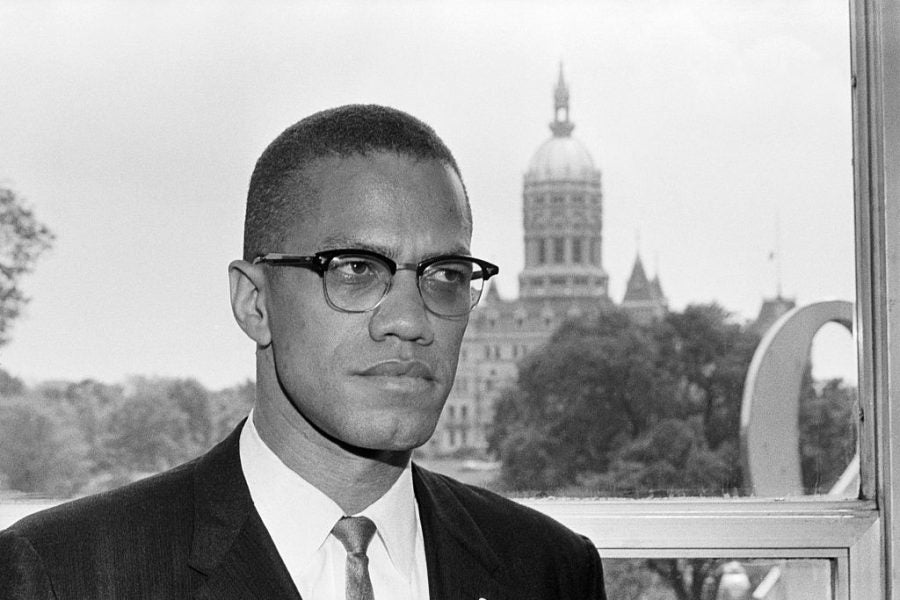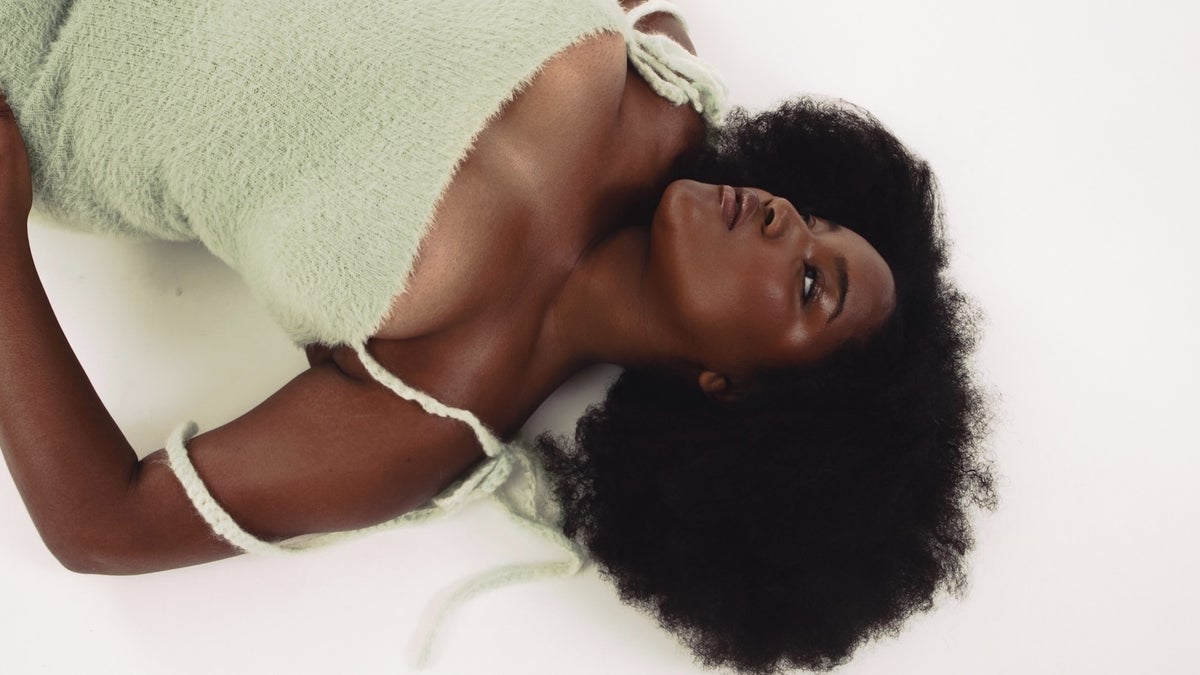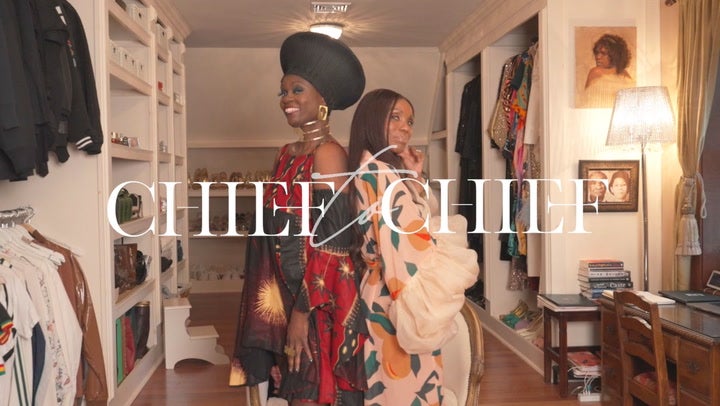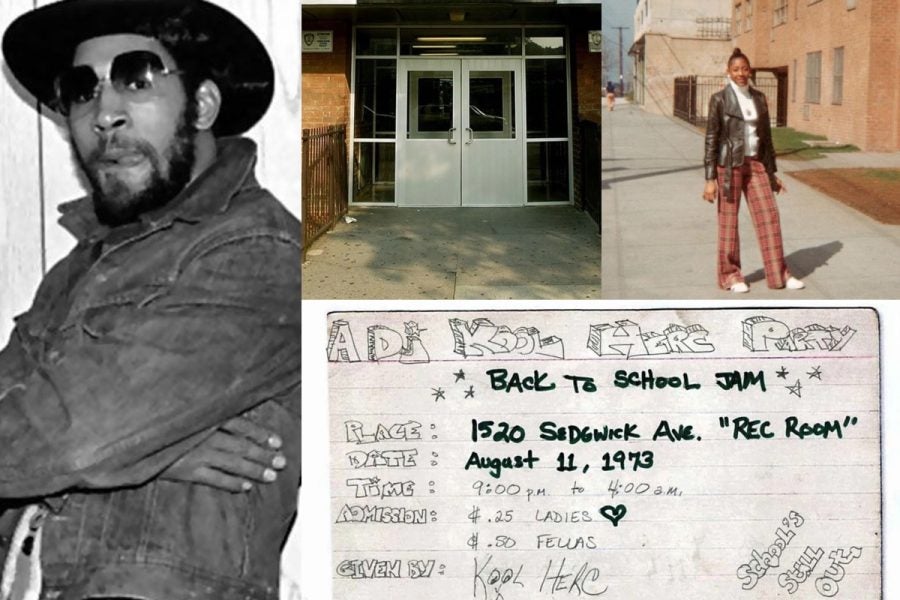
On August 11, 1973, the 102-unit apartment complex at 1520 Sedgwick Avenue in the New York City borough of The Bronx became more than just a residential building. It became the birthplace of a new and exciting genre of music called hip-hop, and the start of a cultural revolution that continues to evolve, even 50 years after its inception.
When Cindy Campbell decided to throw a back-to-school party in the recreation room of this now-historic high-rise, it was to raise money to purchase new clothes for the upcoming school year. The entrance fee was 50 cents for boys, and a quarter for girls; and her parents supplied food and drinks, which also came with a reasonable charge. The most important aspect of this event was the music, which was provided by her 18-year-old brother Clive Campbell, or Kool Herc, as he was called around the neighborhood.
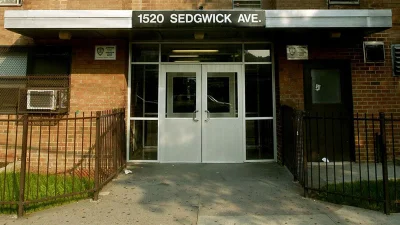
The promotional flyer was hand-drawn, and read “A DJ Kool Herc Party,” in large, bold letters. Below, it read “Back To School Jam,” and listed the date, time, and price in addition to the special guests that would be in attendance. Over 300 people came to the Campbell’s event on Sedgwick Avenue. No one had heard of DJ Kool Herc prior to that summer evening in August, yet the following day, he was famous across his borough, and sometime later, he would be celebrated as the architect of what would become the world’s most popular music form.
“The party was important not so much because of its size or Herc’s playlist or any special dance that got introduced,” Jeff Chang, author of Can’t Stop Won’t Stop: A History of the Hip-Hop Generation, told Paste Magazine in a 2013 interview. “[But] the fact that it sparked a scene that transformed the youth culture in that devastated borough. Cindy and Herc’s party came right at the moment when gangs had begun to wane and young people were looking for ways to gather and express themselves.”
At the genre’s first mixer, Herc set the tone with hits such as “It’s Just Begun,” by the Jimmy Castor Bunch, and classic tracks from the Incredible Bongo Band, The Isley Brothers, James Brown, and many more. What was groundbreaking about this party was how the songs were played. The Jamaican-born DJ introduced an unheard of technique he called the “merry go ‘round,” where he would use two versions of the same record to prolong the song’s break – which allowed the break boys, or ‘b-boys’ to hit the dance floor and move to the rhythm of whatever was being played.
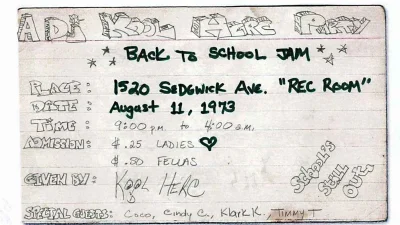
Alongside the exhibition of this new and expressive style, Herc’s friend Coke La Rock demonstrated another innovation of rhyming words to the beat of the music, an action that would later be described as “rapping.” With the presence of the DJ, emcee, b-boys, and graffiti artists, a new genre was born, and changed the lives of not only the people who were directly involved with its inception, but would alter the fabric of popular culture and the music industry as whole for decades to come.
In the years following the fateful night of August 11, 1973, hip-hop has evolved dramatically. The influence of artists such Queen Latifah, Snoop Dogg, LL Cool J, and Jay-Z among others, have made this still-growing genre a global brand, and has proven that it is much more than just the music. This urban artform has impacted the industries of fashion, entertainment, food, and countless others; making it not only a sound that people can nod their heads to, but something that would ultimately define an era – and beyond.
What Cindy Campbell and her brother DJ Kool Herc created some five decades ago started as a way to earn money without having to resort to methods that some would say defined their environment. Like many things in urban neighborhoods across the country, hip-hop was born out of necessity. It gave a voice to the unheard, and provided an outlet of hope for people that for a time, found that feeling very hard to come by.
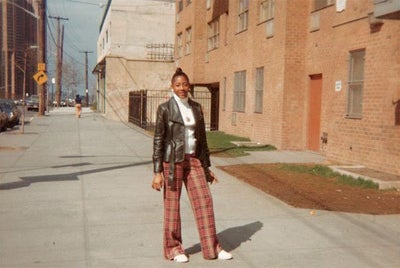
“Hip-Hop came from a very humble beginning,” Campbell said in an interview with Rock the Bells in 2021. “It wasn’t started from blood money, illegal money, or drug money. It wasn’t started from any of that. It was rooted on a very strong foundation.”
“Therefore, I believe it cannot be dismantled because it was built firmly,” she continued. “You can only build and build and grow on it. And as time changed, it started evolving. Things kept happening and happening. And we’re always blessed when somebody does something and keeps it alive.”

